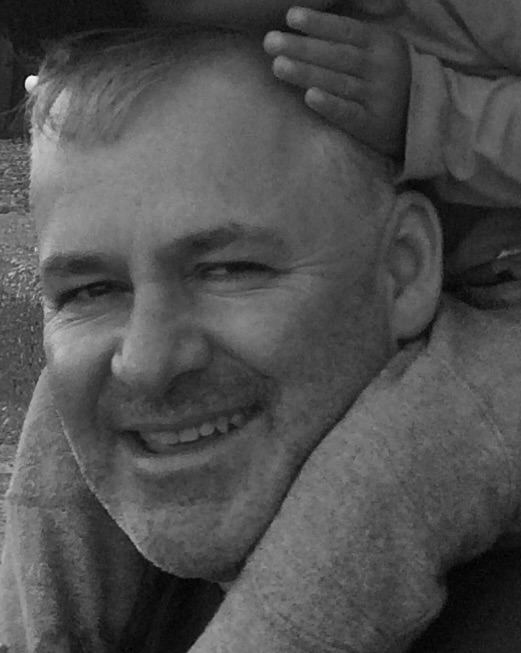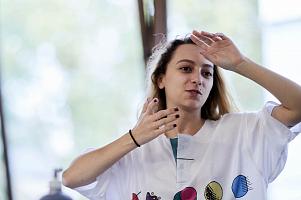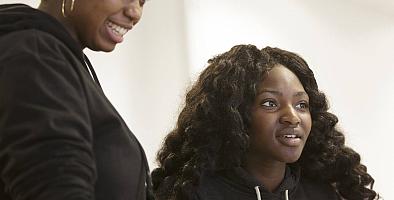Integrated Degree
Social Work (with Foundation Year)
Content navigation menu
Why study Integrated Degree Social Work (with Foundation Year) at Goldsmiths
This foundation year programme supports you in accessing our BA Social Work undergraduate programme and studying to become a qualified Social Worker.
- If you do not have the required qualifications for degree-level study, our BA in Social Work (with Integrated Foundation Year) offers an alternative entry route
- The foundation year is closely aligned with our undergraduate BA Social Work programme, offering an introduction to social work theories and practice
- As part of the foundation year, you will take modules that develop your academic and research skills to ensure you are well-equipped for undergraduate study
- You will undertake social work assessments that will support you in meeting the academic and work experience requirements for entry to our BA Social Work programme
- If you pass the foundation year, you can progress onto the BA Social Work programme and study to become a qualified Social Worker
- Social work education at Goldsmiths has a long and distinguished record – you'll be taught by established social work academics who have considerable research and/or practice experience in their fields
- On successful completion of the programme you will be eligible to apply to Social Work England for registration as a qualified social worker - and will be able to access numerous graduate social work opportunities in London and beyond. You could go on to work in areas such as child protection, youth justice, adult social care, mental health and much more in local authorities, charities and other social care agencies
Contact the department
If you have specific questions about the degree, contact Mark Taylor.
UCAS code
L502
Entry requirements
A-level: EE
BTEC: PP
Length
1 year (Foundation) followed by 3 years (Undergraduate Degree)
Fees
Home - full-time: £5760
International - full-time: £20650
(Foundation year only)
Departments
Social, Therapeutic and Community Studies
Centre for Academic Language and Literacies
What you'll study
Developing your academic skills
Alongside direct preparation for an undergraduate degree in social work, you will take two modules with our Centre for Academic Language and Literacies (CALL). These modules will help you develop the broader academic and research skills required for undergraduate study.
You will also learn how key social and political movements of the period have influenced the world we live in today through a cross-disciplinary module: Culture and Society in Post-war Britain.
Through the Social Work Foundation module, you will be introduced to social work theories and practices that prepare you for the BA Social Work programme, while ensuring you meet the entry requirements for the course.
| Module title | Credits |
|---|---|
| Reading and Writing Your World | 30 credits |
| Building Your Research World | 30 credits |
| Culture and Society in Postwar Britain | 30 credits |
| Social Work Foundation | 30 credits |
Teaching style
The foundation year provides you with core disciplinary and academic skills, as well as acting as a supportive bridge to induct you into university life. During your studies, you will be housed and supported within the Department of Social, Therapeutic and Community Studies to ensure you are integrated into the department's ways of working before progressing onto your undergraduate degree.
How you’ll be assessed
You’ll be assessed by a variety of methods that broaden your academic skillset. These may include coursework assignments such as essays, critical commentaries, presentations and personal reflections as well as seen examinations.
Entry requirements
We accept the following qualifications:
A-level: EE
BTEC: PP
Additional entry requirements
To join the Social Work Foundation Year programme you are also required to meet the following criteria:
- Achieved a Level 2 qualification in GCSE English at Grade 4 or above or an equivalent qualification
- Pass our essential fitness to train conditions, which include a DBS check and an occupational health check.
- Demonstrate some relevant experience in a field related to social work, you will also be able to gain this experience through the foundation year
Alternative qualifications
For candidates who have not studied any Level 3 qualifications in the last two years, there are no formal qualifications required for admission, other than the GCSE English requirement mentioned above. You will also need to demonstrate that you can benefit from the programme by undertaking an additional admissions process. This may involve an interview or the submission of a piece of writing to assess suitability to study.
If you can't find your qualification here, then please visit our entry requirements page for a list of alternative qualifications.
International Qualifications
We also accept a wide range of international qualifications. Find out more about the qualifications we accept from around the world.
If English isn’t your first language, you will need an IELTS score (or equivalent English language qualification) of 7.0 overall to study this programme. If you need assistance with your English language, we offer a range of courses that can help prepare you for degree-level study.
Disclosure and Barring Service (DBS) Enhanced Disclosure
It is a requirement of entry onto the course that students possess an enhanced check by the Disclosure and Barring Service (DBS). Therefore, any offer of a place will be conditional on a satisfactory DBS enhanced disclosure, which students are required to pay for (DBS costs).
Certain types of criminal convictions and cautions may have implications for entry to study Social Work as well as practice placements and subsequent employment. Applicants will be invited to disclose any charges pending, any convictions and cautions and to complete a Declaration of Suitability for Social Work form.
If you disclose a criminal record at interview, we will need to consult our stakeholder group on whether you are suitable to join the course. This process is likely to delay our decision on whether to offer you a place on the course by several weeks.
Fees and funding
Annual tuition fees
These are the UG fees for students starting their programme in the 2025/2026 academic year.
- Home - full-time: £5760
- International - full-time: £20650
Please note: These are the tuition fees for the foundation year only. Please visit the relevant programme page (BA Social Work) to see the fees for years one to three.
If your fees are not listed here, please check our undergraduate fees guidance or contact the Fees Office, who can also advise you about how to pay your fees.
It’s not currently possible for international students to study part-time if you require a Student Visa, however this is currently being reviewed and will be confirmed in the new year. Please read our visa guidance in the interim for more information. If you think you might be eligible to study part-time while being on another visa type, please contact our Admissions Team for more information.
If you are looking to pay your fees please see our guide to making a payment.
Additional costs
In addition to your tuition fees, you'll be responsible for any additional costs associated with your programme, such as buying stationery and paying for photocopying. You can find out more about what you need to budget for on our study costs page.
There may also be specific additional costs associated with your programme. This can include things like paying for field trips or specialist materials for your assignments. Please check the programme specification for more information.
Skills and careers
Skills
Some of the skills you'll develop through your Foundation Year include:
• Effective communication in written form
• Critical and analytical skills
• The ability to bring together insights from a range of subjects
Careers
Our social work graduates find jobs in a range of social work agencies. Most local authorities have schemes to recruit newly qualified social workers and our graduate employment rates are consistently high.
You may pursue work as a Social Worker in a range of fields, including child protection, youth justice, adult social care, mental health and much more in local authorities, charities and other social care agencies.
The Social Work Foundation Year is convened by Dr. Mark Taylor.
You will also be taught by:
- David Woodger
- Dan Timariu
- Chloe Maslin
- Carmen Yau






